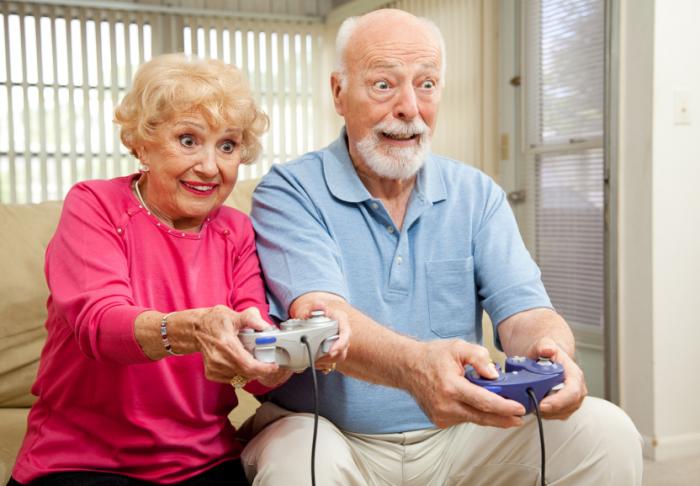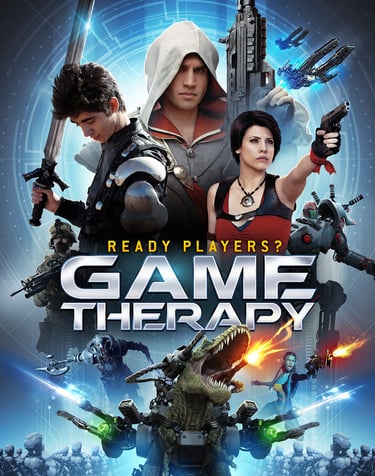Mobile and online videogames: between addiction trouble-makers and therapeutic medical devices
A post discussing addiction and neurological side effects of excessive or problematic videogaming and the redemption promise from the software-as-a-medical-device (SaMD) industry with uptake and impact yet to be seen.
POSTS
Irene Petre
3/19/20253 min read


As the Brain Awareness Week activities are ending, it appears relevant to raise awareness of another controversial aspect: the addiction problems related to online and mobile videogaming, that seem to have grown in importance in recent years due to our digital and “mobile” lives linked to increased use of digital and smartphone devices. On the other hand, some MedTech innovators and digital experts are trying to reposition the video-gaming industry’s bad reputation and put some of the addictive features to good use.
No doubt, the videogame market has seen strong growth over the recent decades and it is currently estimated to about USD300bn for 2024 according to the Medical Technology Journal. Out of this, the mobile gaming segment represents about a third and has seen even stronger growth in recent years. Games like "Candy Crush," "Clash of Clans," and "PUBG Mobile" are some of the most played and most addictive. They are designed to keep players engaged for long periods of time through competition and a reward system, often leading to excessive screen time and neglect of real-life personal, social, educational and professional responsibilities.
For years academics, psychotherapists and doctors have been investigating the effects of videogaming on our health and lives and an international literature review seems to indicate gaming is addictive irrespective of culture and geography and can have “negative effects on interpersonal relationships, increased financial difficulties, academic difficulties” (F. Nuyens, M. Griffith 2017), lead to impaired cognitive skills for “problematic gaming” (PG) cases, impaired inhibitory control and impulsivity, riskier decision making (M. Legault, H. Z. Liu, I. Balodis, 2021) and the list could go on. A recent study from 2023 found that “when presented with facial emotions, problematic gaming subjects displayed unique cerebral functioning […] and displayed a deficit in social perception similar to that of patients with methamphetamine use disorder”. Whilst more research in on the way, it is becoming clear that excessive online gaming can impact the brain functions and even change its structure according to several articles in the International Journal for Environmental Research and Public Health or Journal de Therapie Comportamentale e Cognitive and age, gender, socio-economic background etc. are important influencing factors.
There are complex ethical issues associated with the gaming industry and the in-built addictiveness of both traditional and mobile games. Many gaming companies have been sponsoring research programs and initiating anti-addiction strategies – such as tracking and notifying certain users if their behaviour spikes out of certain parameters.
Even more interesting is the use of videogames for therapeutic health purposes - the software as a medical device (SaMD) industry has been keen to tap into the media and entertainment sector knowledge about user behaviour.
For example, US-based company Akili was granted FDA approval in H1 2024 for the first therapeutic videogame (which in fact was a mobile game compatible with iOS and Android devices) to use in a treatment for attention-deficit hyperactivity disorder (ADHD), via a game called EndeavorRx, although, so far the product hasn’t enjoyed high levels of adoption.
Moreover, in September 2024 another US company, DeepWell received the FDA 510(k) clearance on its biofeedback (ABS) software development kit (SDK) for use in over-the-counter treatments for the reduction of stress and as an adjunctive treatment for high blood pressure, together with other pharmacological and nonpharmacological interventions. Unlike Akili, DeepWell’s software is used by developers to create therapeutic elements on top of already existing games and for the time being it is available just on PC games and PC-based devices.
What will be the uptake and potential implications of these products is yet to be seen and for sure more research is needed in both directions – for the investigation of mobile and online videogame addictiveness and side-effects as well as for the potential therapeutic uses of videogames as medical devices for therapeutic use in various health problems.


IGEA Healthcare
Strategic Advisory for Life Sciences
Switzerland, UK, Italy
contact@igeahealthcare.com
© 2025. All rights reserved.
